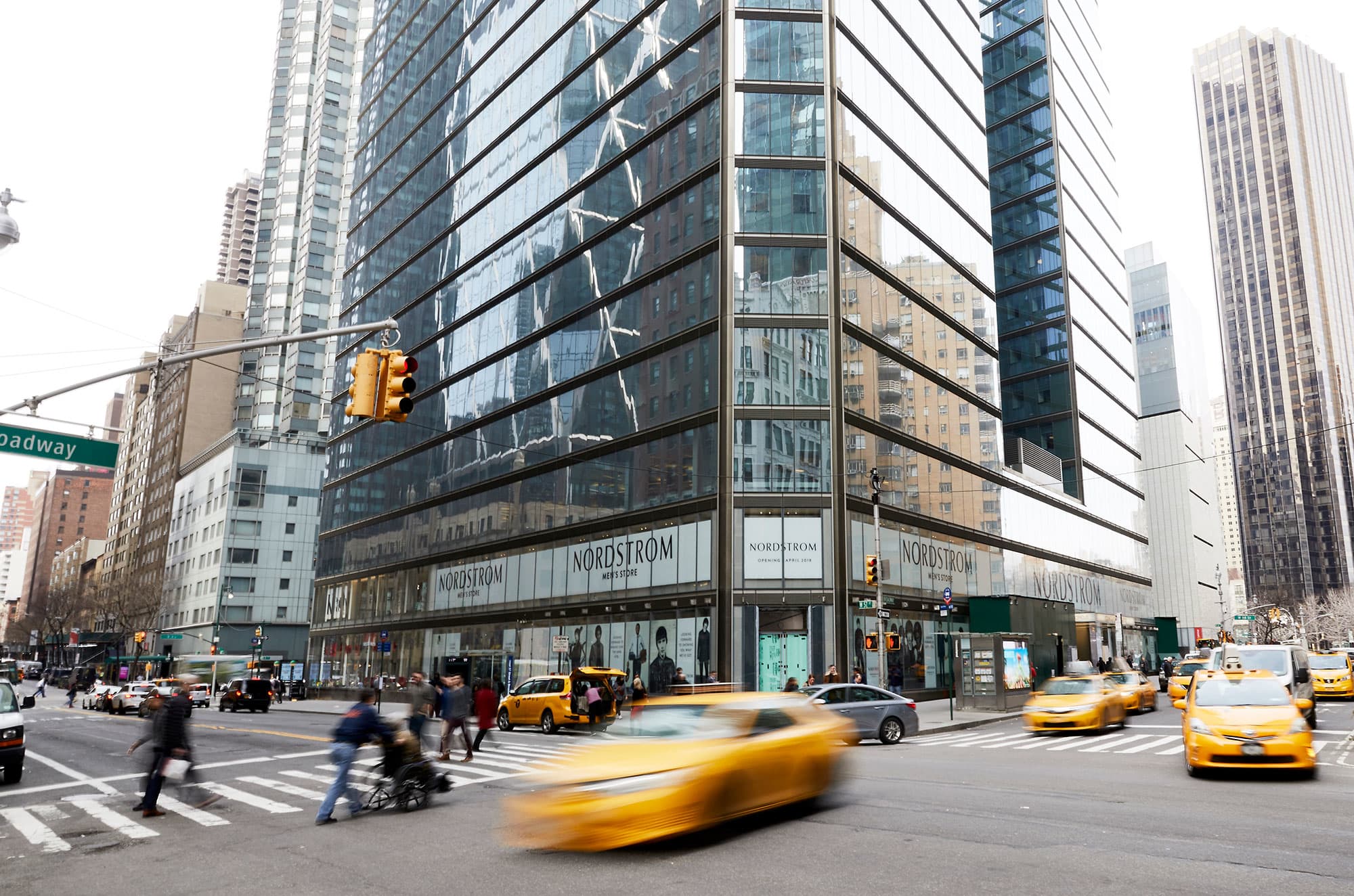The outside of Nordstrom’s men’s store in New York, which opened in April 2018.
Source: Nordstrom
Nordstrom is closing all of its stores temporarily to try to curb the spread of COVID-19.
The retailer has also withdrawn its 2020 earnings outlook, due to the uncertainty of the situation. Nordstrom said it has experienced “a broad-based deceleration in customer demand over the past couple of weeks, particularly in markets most affected by the virus.”
The Seattle-based chain will close all of its locations, including its off-price division Nordstrom Rack, in the U.S. and Canada beginning Tuesday, for two weeks. Nordstrom said it will continue to offer pay and benefits to store workers at this time.
Nordstrom has 116 full-line department stores in the U.S., Canada, and Puerto Rico, and 248 Rack shops.
“During this unprecedented period of uncertainty, we have in place the appropriate business continuity plans, operational framework and team,” CEO Erik Nordstrom said in a statement. “This, in concert with ending 2019 with a solid financial position and healthy balance sheet, gives us the ability to weather this challenging moment in time.”
Nordstrom’s e-commerce operations are still up and running during this time, the company said. Online made up roughly a third of Nordstrom’s sales in 2019.
With so much economic uncertainty, Nordstrom said it will also be working toward making “further reductions to its expense and capital expenditure plans.” The retailer is also suspending share repurchases.
Amid a broader market selloff, Nordstrom shares closed Monday down more than 20%. Its stock has tumbled more than 60% over the past 12 months.
Meantime, Nordstrom’s peers are still operating some of their locations, just on reduced hours. Kohl’s and J.C. Penney have cut their store hours. Macy’s has not yet offered an update on its plans.
Many retailers ranging from Nike and Apple to Glossier and Allbirds have closed their stores temporarily to allow employees to be safe at home, and encouraging consumers to do the same. In some states, however, all non-essential retail is being forced closed, according to local mandates. In that case, a retailer has no decision to make but to go dark.
Gordon Haskett analyst Chuck Grom said he expects same-store sales declines for mall-based retailers, including department stores, to be “far worse than what we saw during the post 9-11 period and 2008 Great Recession.”
